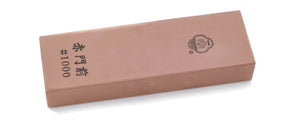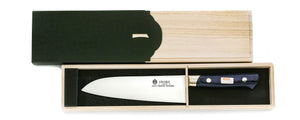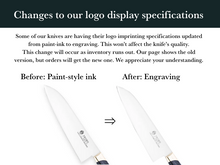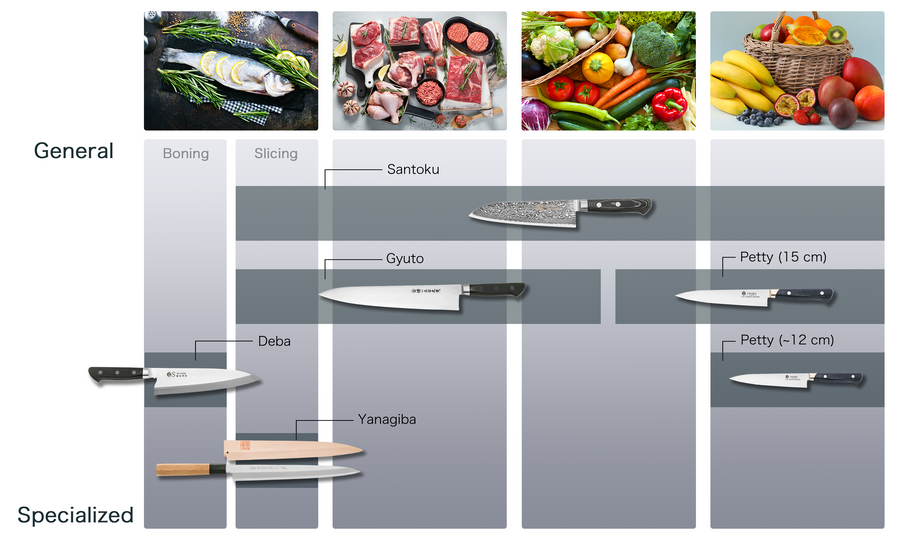
8A-N Series
Our 8A-N Series is designed for newcomers to Japanese kitchen knives, making it an excellent gift choice. These knives offer high rust resistance and are easy to sharpen. The AUS8 stainless steel used in this series is commonly found in professional kitchen knives. While it is not as hard as steels like Silver Steel #3 or VG-10, it is significantly easier to resharpen and use, making it perfect for your first Japanese knife. Our 8A-N Series has additional treating and tempering processes, giving them superior cutting ability over other knives using the same materials.
| Product number | Actual Blade Length (mm) | Full Length (mm) | Total Weight (g) |
|---|---|---|---|
| 28as-240 | 240 | 355 | 170 |
| 28as-270 | 270 | 400 | 190 |
| 28as-300 | 300 | 430 | 205 |
| Blade | Material Name | Handle |
|---|---|---|

Double Edged |
AUS-8 | Compressed plywood handle with brim |

Sujihiki
"Sujihiki" in Japanese literally means "flesh slicer" and is also known as "Japnese Carving Knife". It is mainly used for cutting meat. Its long and narrow blade is easy to control when cutting a block of meat and cutting curvely along the stripes. Many people use it as a slicer, and some cooks use it as a sashimi knife. Many use the 300 mm model for cutting large blocks, such as butcher shops. For the restuarants which often slice meat into small pieces such as Yakiniku (BBQ) restuarants, the 270 mm model is more popular. The 240 mm knife is suitable for those with a smaller work volume or those who work with smaller blocks of meat.
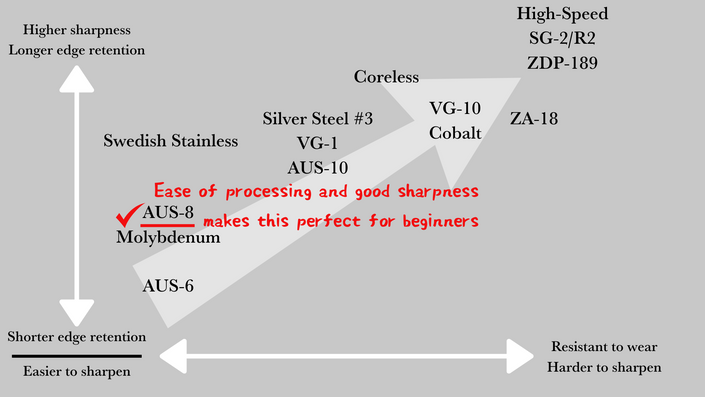
AUS-8
Also known as 8A, molybdenum steel and other names, AUS-8 is rust-resistant and easy to sharpen. Recommended for newcomers to the kitchen knife world.
Stainless Steel
AUS-8 Steel is a standard stainless steel that is often used in knives due to its rust resistance and ease of sharpening. It's lower hardness levels compared to other steels like Silver Steel #3 and VG-10 mean that it will be easier to sharpen and less likely to chip during use. Sakai Ichimonji Mitsuhide's AUS-8 knives have improved sharpness and edge retention due to our special quenching processes.
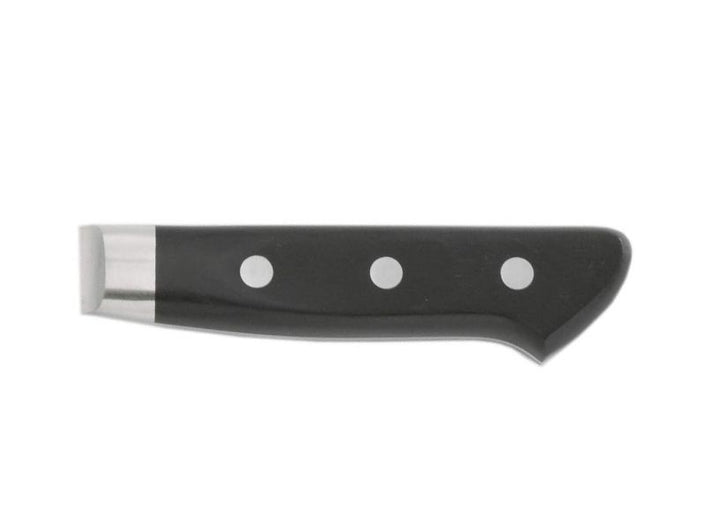
Compressed Wood
This handle is made of a durable, compressed plywood, with a flange attached to improve balance. It's known for being very hygiene-friendly because water cannot easily get into the core wedged between the handle.
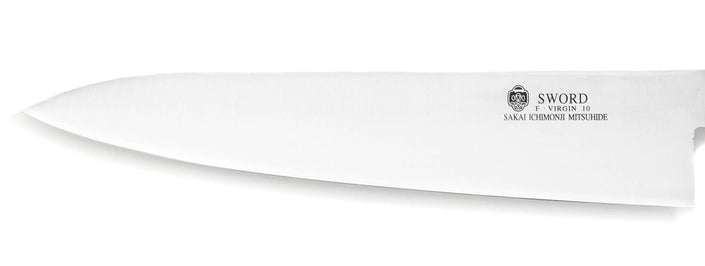
Mono Steel
Mono-steel knives, sometimes called single-steel knives, are made entirely of one piece of steel. Mono-steel knives have better cutting power versus clad and Damascus-finished knives with the same steel material. While mono-steel knives are vulnerable to impact damage, a master artisan can properly quench and remove the steel's distortions, removing this downside while creating a sharp cutting edge.

Optional Engraving
Optional Engraving Service
Sakai Ichimonji provides complimentary engraving using either Japanese Kanji or English Alphabet. Please specify your preference. For details, please visit here
A knife store that has supported the history of knives and food culture in Japan.
It has been 600 years since the birth of swordmaking in the Sakai region of Japan. Sakai Ichimonji Mitsuhide's and it's craftsmen continue to build on that legacy by producing the finest blades in Japan.
This is where the culture of completing a dish of sashimi by "just cutting" and the culture of expressing sharpness as "taste" was born.
For 70 years, we have been connecting the spirit of Sakai's craftsmen with the passion of chefs in Osaka's kitchen equipment shopping district, known as the kitchen of Japan.
We are very happy that our knives can be used by people all over the world.
Precautions
After use, wash off any dirt and wipe thoroughly with a dry cloth to remove any moisture. This product is not for use with frozen foods.This product is handmade, so each piece will be different. Please use the weight and length listed as a guide. Each material is natural and may vary in color. It is not the same as the picture.We take great care with our inventory, but in the unlikely event that we are out of stock, we will contact you by email to let you know.



























